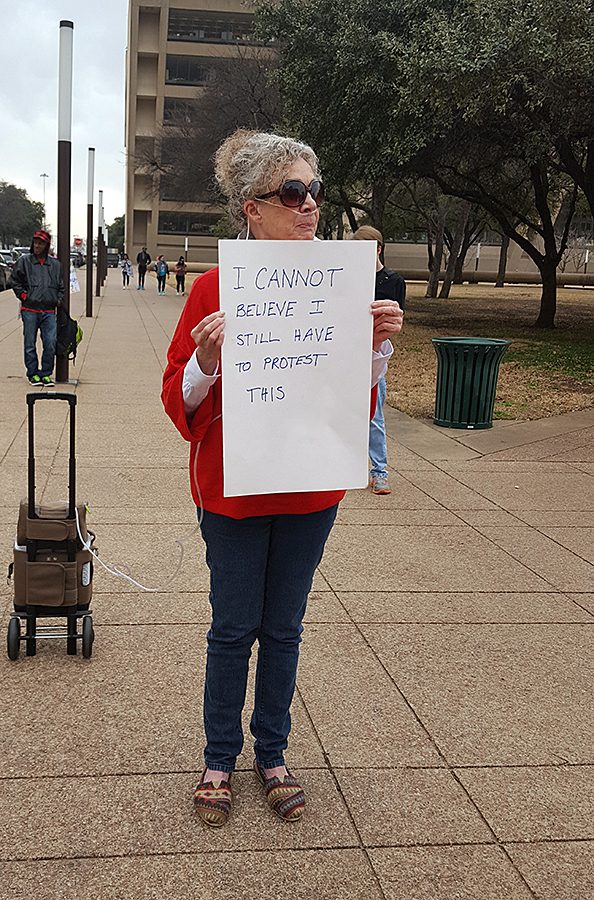According to a Texas Freedom Network report, 94 percent of Texas school districts are on the federal abstinence-only program. Abstinence-only programs prohibit schools to teach about contraceptives and if the school district decides to adapt another program, the school will have to find an alternative form of funding.
“Abstinence until Marriage” programs are designed to teach students or young adults that the most effective way to prevent pregnancy and sexually transmitted diseases (STDs) is to practice abstinence. Junior Nick Cerean holds a very strong abstinence-only ideal.
“Abstinence, I feel like, for me, premarital sex is a no go” Cerean said. “No sex until marriage. That’s how I feel about it just because, why are you going to waste one night for someone you don’t even know if you are not going to spend the rest of your life [with that person?]” Cerean said.
Cerean does not agree with pre-marital sexual activity, but he does know the reality that is going around him.
“I think they should teach students about contraceptives,” Cerean said. “It does help us understand about how they work and why it’s better than just sex without contraceptives, even though sex in itself is a wrong thing to do before marriage” Cerean said.
In addition to Cerean, junior Morgan Berniard says she would not get sexually involved but would be more understanding to couples whom want to express their feelings Senior Darlene Gonzaga believes that it is up to everyone to make their own decisions. All three students agree that sex education should be incorporated into the district’s curriculum, because it will benefit students. According to Berniard, students will have sex, if they want to, regardless of parents and adults telling them not to.
“Students are going to have sex whether or not [the schools] teach,” Berniard said. “The schools should just teach to prevent STDs and pregnancies. I feel like there would be less pregnancies if we knew what’s available to us to keep it from happening rather than us just doing it without knowing it.”
“Abstinence But” programs, or abstinence plus programs teach that abstinence is the ideal decision to make; however, if students are going to make decisions that they will become sexually active, they will be taught that the most responsible way to be sexually active is with the use of contraceptives.
“Not everyone knows about contraceptives, because their parents don’t want to talk about it,” Gonzaga said. “They feel uncomfortable, and they feel like their children will not be doing it. But it’s going to happen, and it’s better that they are exposed, even if it’s through school.”
However, there is concern that if students do receive information through advanced forms of sex education programs, students will be more likely to decide to take the extra step in becoming sexually active. According to the Centers for Disease Control and Prevention, the teen pregnancy rate has declined in teenagers ages 15-17, but still account for one-fourth of births.
“The way I look at it is, [teen pregnancy rate will] keep increasing because people and society are becoming more liberal and more open and more accepting to these things,” Gonzaga said.
However, according to the American Civil Liberties Union website, depriving teenagers from their right to learn about sex, especially because people are becoming more liberal, is a type of censorship.
“Getting to know things is better overall for a person,” Cerean said. “For whoever is in charge to stop funding whatever just because the school is teaching about a certain subject is kind of messed up.”
Read our editorial on sex education offered in Texas here: https://www.raiderecho.com/opinion/2014/05/02/sex-education-should-be-offered-in-texas-schools/























